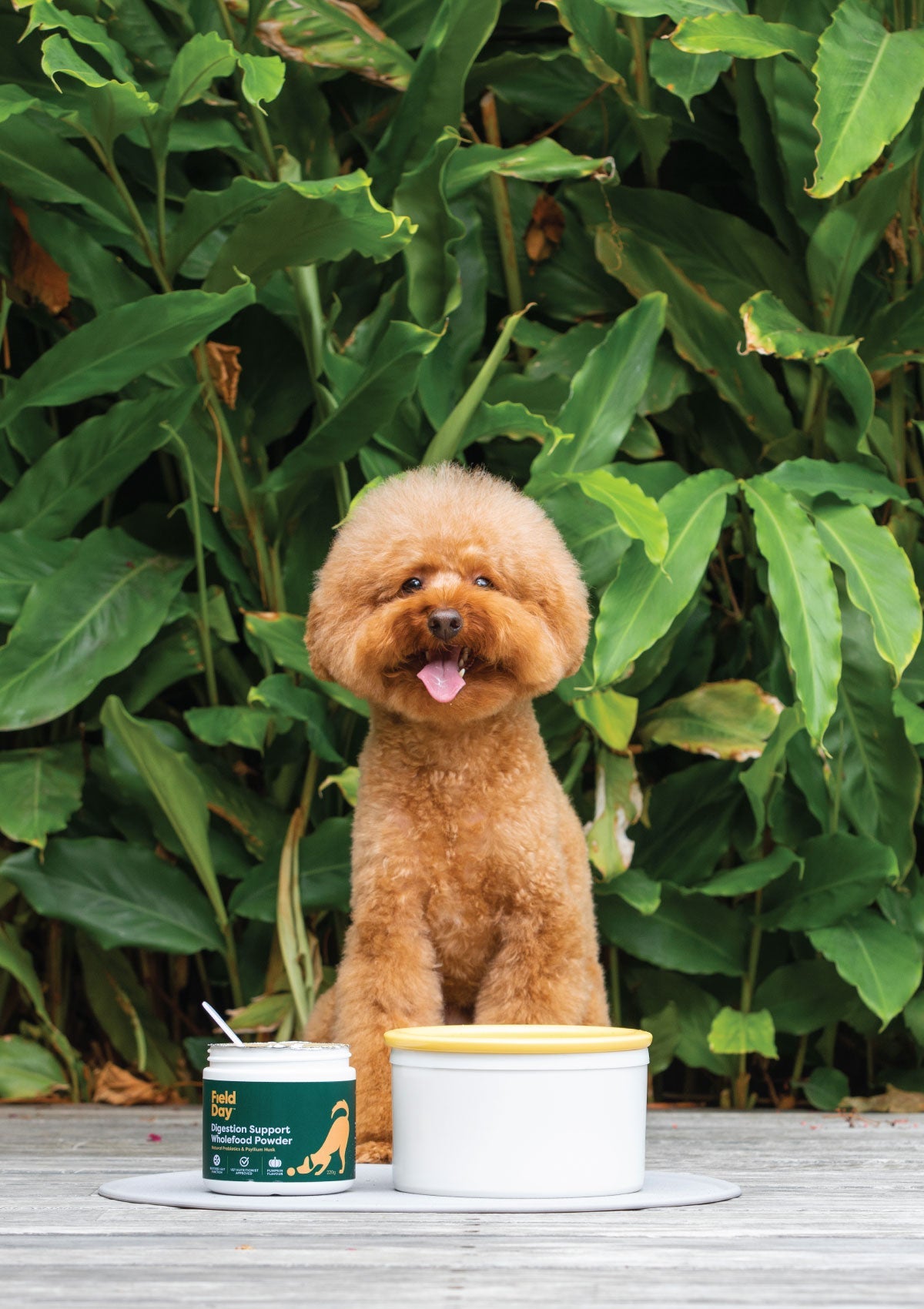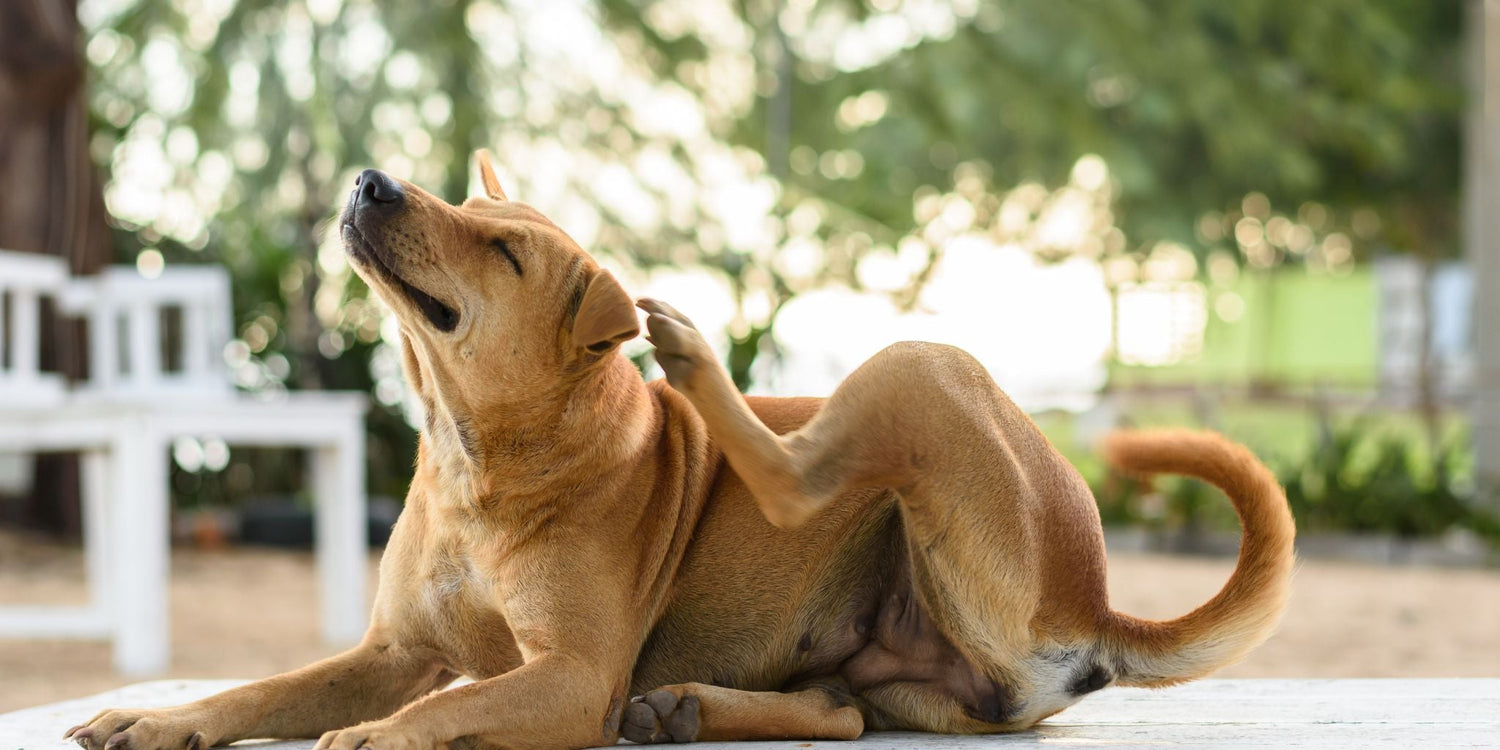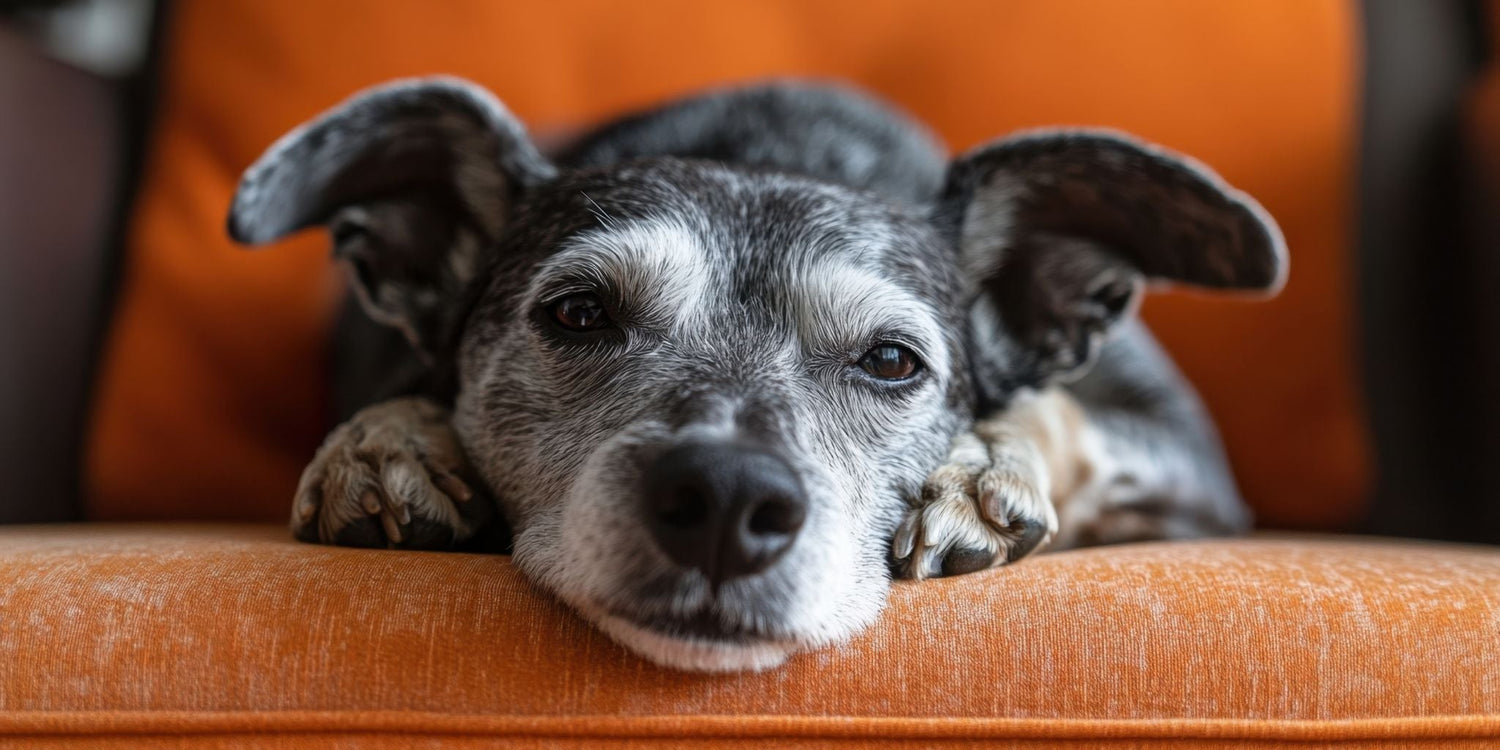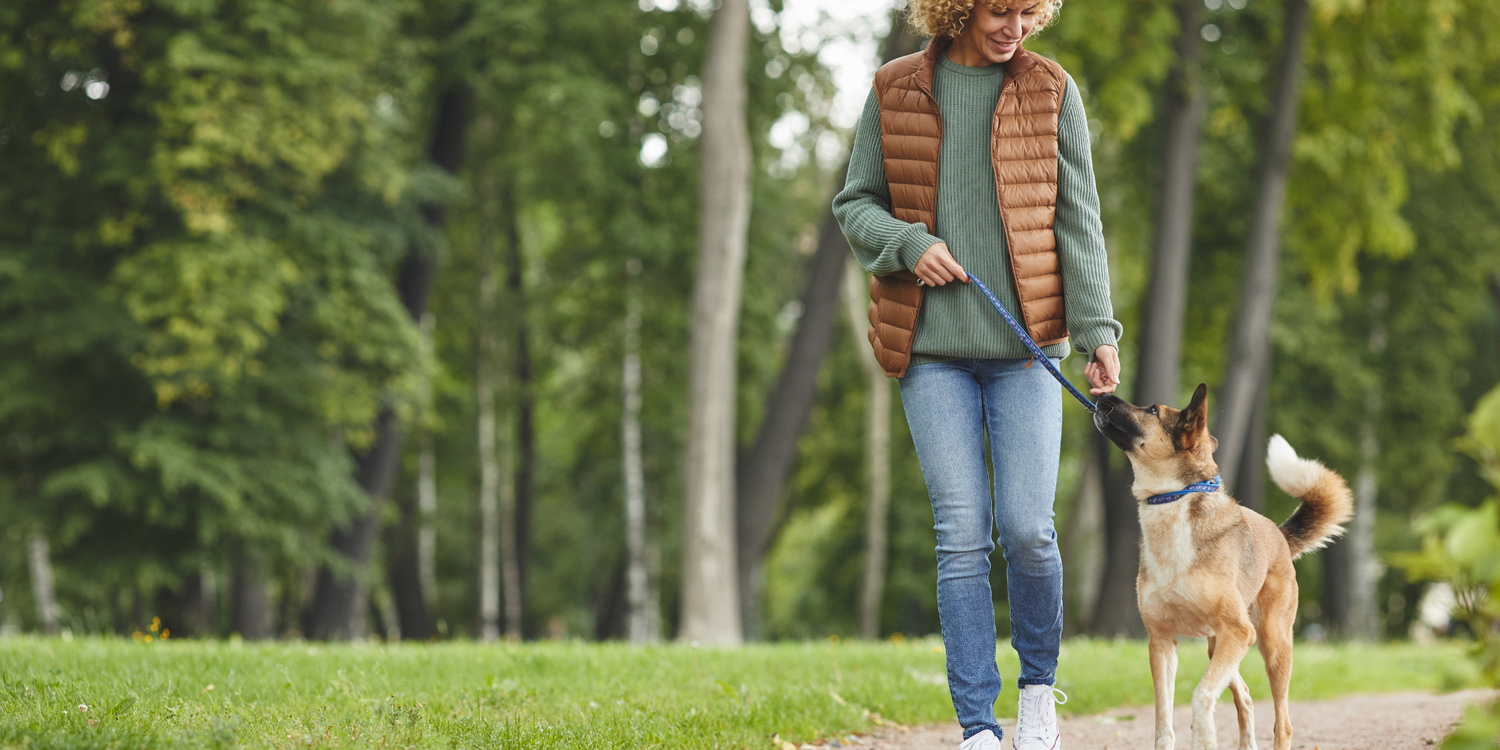
A perfect dog poo should be like play-dough. Firm, moldable and squishy (but not too squishy). It shouldn’t be sloppy and watery like a real-life version of the poo emoji. Vets typically use a faecal scoring system (or dog poop chart) between 1 and 7, where 1 is hard pellets and 7 is a watery poo puddle (ahem, both not ideal).
Just like humans, hard pellets are a sign of constipation and watery poo is a sign of diarrhoea – and both will require further investigation with your vet. Your dog’s poo should sit firmly in the 2 category: Compact, pliable and holds its shape. It should be moist, but not moist enough to leave residue on the ground after you pick it up.
Colour
A healthy dog poo should be a nice, moist chocolate brown (you hate us for that sentence, right?)
But as with humans, every pupper is different. A healthy poo can vary depending on the dog and their diet. But as a general rule, any colour between light to dark brown is ay-okay. If the poo contains other colours – like green, orange, black, grey, red streaks or white speckles – this could indicate a more serious internal problem and leave your pooch feeling pretty crappy. That’s when it’s time to see a vet.
Shape
When it comes to a healthy shape, think looooong and log-like. It could also have clear segments (giving off a lumpy appearance), and your dog shouldn’t have any issues passing. The amount they poo should also be proportionate to their size and food portions. In other words, if your Chihuahua is pooping like a Great Dane, you may have a problem.
What’s the final scoop on poop?
Checking the texture, colour and shape of your dog’s poo is one of the best ways to check in on their health, wellbeing and nutrition. And remember – what goes in, comes out.
So, if you’re stinkerbell is frequently passing runny and moist poos, it could be time to revaluate their diet. They might not be getting balanced nutrition with all the right vitamins, minerals and tasty goodies. Opting for premium dog food or using wholefood supplements may help them to reach peak pooping condition (but as always, seek professional guidance from your vet to rule out any complications). It may also be worth consulting your vet, as your dog may have some more serious issues with their gut and digestion such as IBD.
Our Digestion Support Wholefood Powder was developed by a vet nutritionist, using Australian Hemp Fibre and prebiotics. It’s the perfect meal addition to promote those firm, moldable and residue-free poos that we all know and love.





